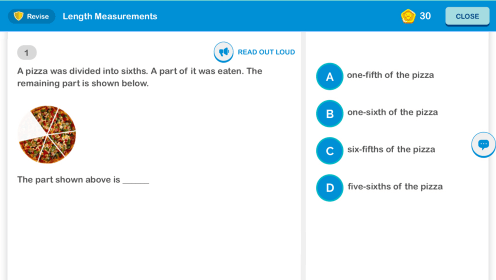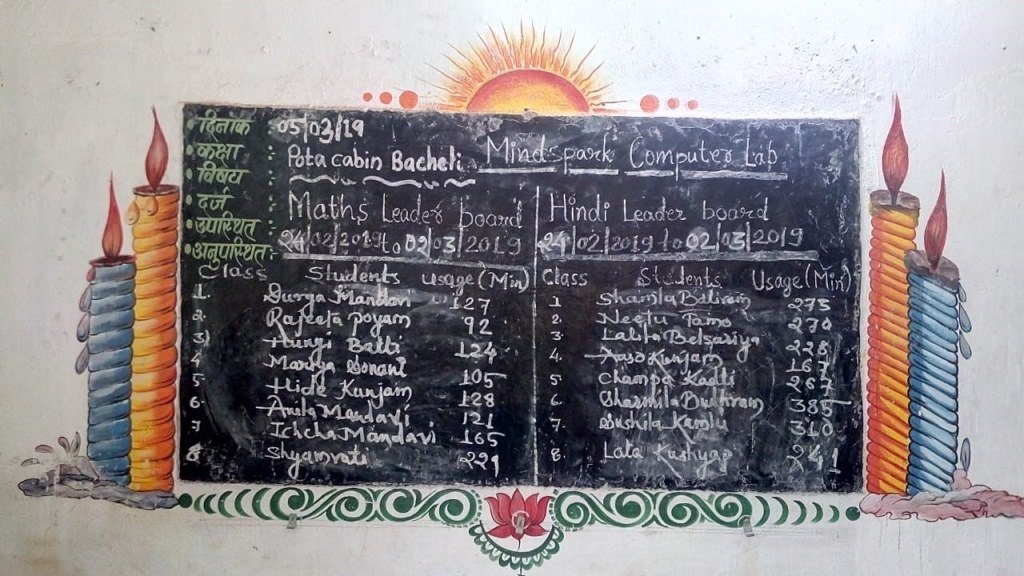 Go Back
Go BackShare
How EdTech is Transforming Education in Remote Dantewada
By Priyanka Kumar
Aug 27, 2019
Do you know where Dantewada is? Chances are, if at all anyone has heard of Dantewada, it is in the context of left-wing extremism, Naxals, conflict and violence. As a result, this remote district of the Indian state of Chhattisgarh – a heavily forested region largely inhabited by local tribal populations – has been left behind when it comes to development, healthcare and education.
Do you know where Dantewada is?
Chances are, if at all anyone has heard of Dantewada, it is in the context of left-wing extremism, Naxals, conflict and violence. As a result, this remote district of the Indian state of Chhattisgarh – a heavily forested region largely inhabited by local tribal populations – has been left behind when it comes to development, healthcare and education.
So, it caught many by surprise when the Chhattisgarh Infotech Promotion Society (CHiPS), led at that time by their enterprising and determined CEO, Alex Paul Menon, initiated the District Virtual Education Project (DVEP) in three affected Maoist districts – Rajnandgaon, Dantewada and Bastar (Jagdalpur). The idea was to use technology to benefit students, in a region where the average literacy rate of 33.2% is far below the national average. This was a daunting ask given that the area still lacked proper road connectivity, much less mobile network and Internet services.
A decision was made to use personalized adaptive learning (PAL) solutions to identify and remediate student learning gaps at an individual level in government schools. It is common for students in the same classroom to be at different learning levels. However, with the teacher bound to teach at grade level, those at the bottom of the class often suffer – already below the expected grade level, they mostly fall further behind and end up learning very little. This is where PAL software can help, by allowing teachers to identify the knowledge gaps of every child and provide individual assistance in the form of adaptive content and assessments.
After an initial period of testing waters in the 2017-18 academic period with Funtoot, Educational Initiatives’ pedagogy-based Mindspark was adopted for Hindi and Mathematics in classes 1 to 8 from 2018-19 onwards. The intervention began as early as class 1 so that the gaps in student learning could be tackled in the initial stages itself, much before they escalated into a learning crisis. A pilot is currently underway in 21 schools in 2 districts – 17 pota cabin (residential) schools in Dantewada and four in Rajnandgaon. Computer labs have been established, teachers have been provided training to familiarize themselves with the software and be able to help out students, and an IT coordinator serves 4-5 schools by providing guidance throughout.

While the long-term goal is to improve student learning outcomes, the focus in the first year was to first increase usage among the students, many of whom came from disadvantaged backgrounds and were unaccustomed to both computers and the language of the software. Expectations were low, with teachers also expressing doubts on whether children would be able to even use the technology given to them.
However, one year in, usage has jumped up significantly, with 14 schools meeting the target of 100+ minutes in the last two weeks of February 2019. By the end of the academic year, 16 schools consistently had above 120 minutes of usage. In fact, lab utilization by the end of last year’s program was 115%, over the initial target of 80%, while average daily usage of each laptop during the period from February to March was 242 minutes. This was well above the target of 168 minutes and maximum possibility of 210 minutes, as students enthusiastically used the software even after hours in residential schools, sometimes staying as late as 9pm!
More than the numbers though, it is the positive response from teachers and students alike that has shown promise and impact. Several teachers have reported how students showed more interest in theory classes after their work in the lab, with even children in classes 2 and 3 learning quicker and displaying complete ease with using the laptops.
The success of the initiative so far has provided a boost to EI and its partners as well, pointing to the feasibility of an implementation model with light-touch support to schools and teachers, which is also more cost-effective and scalable. The project team came up with innovative solutions to tackle the problems they faced, for example driving nearly 12 kms to find network and sync data to generate results. To promote usage, a healthy inter-school competition was introduced to provide incentives, while each school also put up a weekly student leaderboard. A district-wide WhatsApp group was created to share best practices, announce competition results and provide support. The involvement of district education officers also provided a necessary push. As the pilot continues into its second year, the team is expecting to see a rise in the literacy and numeracy levels as well.

Most of all, the pilot has created a buzz in the ecosystem as it shows that using EdTech for learning is possible. In fact, if it could create impact in a place like Dantewada – with its infrastructural limitations and operational challenges – and could help those children who have less inputs and limited exposure to EdTech, then it gives the rest of the states the motivation that they can also make this work, perhaps much more easily. While Chhattisgarh was among the earliest states to try this, other states like Andhra Pradesh and Madhya Pradesh are already picking up PAL interventions now. Recently, the Dantewada and Rajnandgaon teams were invited to Gujarat to present the learnings and findings from this intervention.
So, perhaps the next time someone thinks about Dantewada, the first association may have more to do with its success in attempting to use technology to improve student learning.
Watch more about this initiative in Dantewada and its impact on students and teachers –
Disclaimer: Central Square Foundation was one of the partners that collaborated with CHiPs and Educational Initiatives for this program in 2018-19.
Keywords
Authored by
Priyanka Kumar
CSF
Share this on
